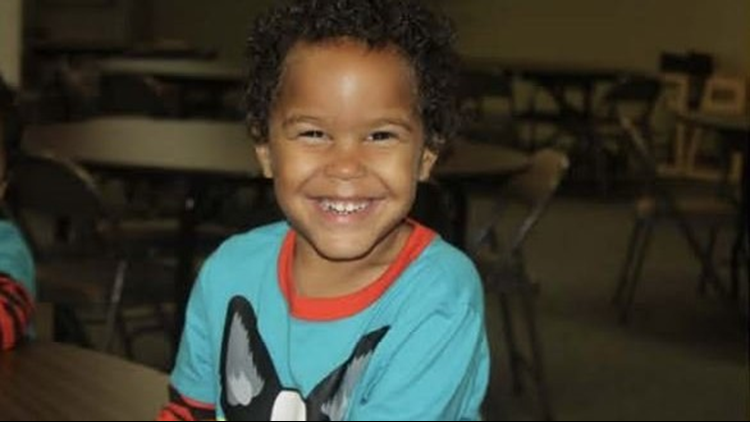GRAND RAPIDS, Mich. — In a state of crisis -- that's how Michigan's governor Gretchen Whitmer describes the state's failing education system. More than 50% of Michigan's 3rd graders can not read at grade level. Those numbers have been linked to the lack of preschool opportunities in our state.
More than 50 percent of Michigan third-graders can not read at grade level. Those numbers have been linked to the lack of preschool opportunities in our state.
"Early education is the most critical area in our society now. We need to do a substantial investment," says Dr. Nkechy Ezeh, a life-long educator. "We have a window that if you don't invest and do something we are going to pay more at the end of it. Early education is part of a pipeline that we need to protect, continue to invest in and measure. And, we need to hold people accountable."
Dr. Ezeh was a driving force behind the "Ready by Five Early Childhood Proposal" passed by Kent County voters in the fall. The county-wide millage will generate approximately $5.7 million each year that will support early childhood services, including health and developmental screenings for all Kent County children.
But, long before her involvement in "Ready by Five, Ezeh was leading the charge to improve Michigan's failing education system. She is the founder and CEO of The Early Learning Neighborhood Collaborative - otherwise known as ELNC.
ELNC is a place-based early education collaborative, established in 2011, with the help of a $5 million start-up grant, from the W.K. Kellogg Foundation. Over the past 7 years, ELNC has partnered with multiple community agencies. They've made kindergarten readiness its mission.
"ELNC is about educating the whole community on the importance of early childhood education. Early childhood education matters. It sets the tone for everything," says Dr. Ezeh.
Despite the fact that so much focus is placed on how well students perform in the 3rd grade, Ezeh says research has proven that the playing, reading and even the human interaction that goes on during preschool years are all building blocks for future success.
In fact, data shows a child's brain develops the most by the time he or she is 3-years-old. Yet, too many children are not getting a chance at a strong start. Right now, in Kent County, there are a little more than 44,000 children under the age 5. Nearly half of them live in economically disadvantaged homes. Of that number, according to county statistics, only 14% of 3-year olds have access to quality and affordable preschool.
"The child will go into elementary school not ready - go into secondary school not ready and go into college not ready," says Dr. Ezeh. "What life is the child going to have? All children... all children deserve better."
And, thanks to ELNC hundreds of West Michigan children are getting better access to early learning opportunities. Since it's inception, ELNC has created 35 preschool classrooms in 7 core Grand Rapids communities.
That's 500 preschool slots, in the area's most vulnerable neighborhoods, that would otherwise not exist.
The class sizes are small. The teachers are well trained. But, Ezeh says their focus is on the "whole child," that includes what happens outside the classroom.
"Education has to be seen in a more comprehensive term. It is the environment. What environment are our children in. The people that surround our children. They message they hear about themselves," she says. "A child does not exist alone. They exist within the context of a family and a community. Unless we engage parents, support them and educate them everything we are doing in early childhood education will not be sustained."
ELNC offers an array of services, including in-home support and family coaching for parents. It is part of the program's two-generation approach.
"For instance, we do basic needs assessments. That is the basic minimum we can do," she says. "As much as we are pouring into our children, we need to be pouring into our parents. The two-generation approach is one of my favorite things and I think all early childhood needs to be going into that direction."
The approach seeks to identify how a child's family is doing in the areas of health; finance, transportation, housing and education.
"If any of these are disrupted thie child's day is disrupted," says Ezeh.
Each student in the ELNC program has a family coach assigned to the classroom to help connect them with community resources in those areas. ELNC has become a model of how to improve access to early learning. But, Dr. Ezeh says there is much more work to be done.
"We still have about 50% of children in our community that don't have access to quality early learning opportunities," she points out. "As many gains as we've made in the past 7 years, we still have a long way to go."
►Make it easy to keep up to date with more stories like this. Download the 13 ON YOUR SIDE app now.
Have a news tip? Email news@13onyourside.com, visit our Facebook page or Twitter.



